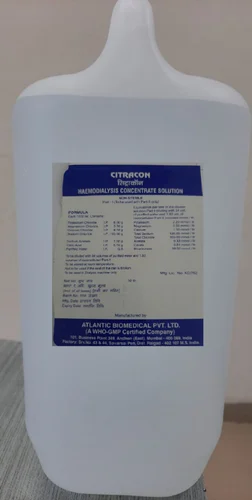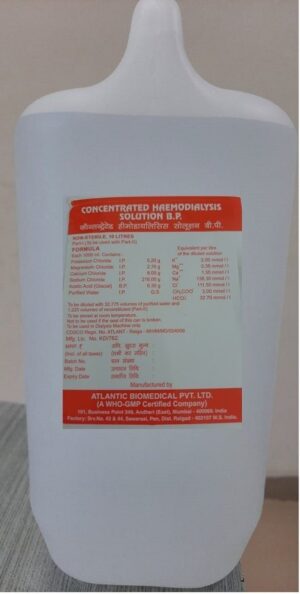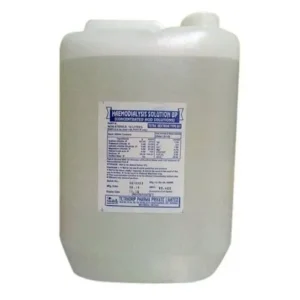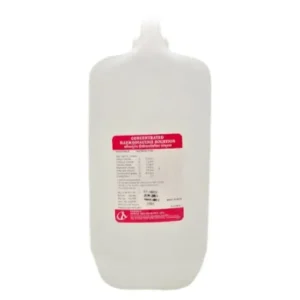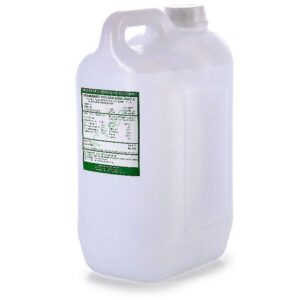Description
- Acetate is a normal metabolite in the human body
- The metabolism of acetale generates bicarbonate and acetate therefore adds to the buffer gain during dialysis The presence of 3-5 mmol/l acetate or more in dialysis fluid leads during dialysis to
- diffusive transfer of acetate into blood, generally resulting in a 5 to 10-fold increase in plasma acetate level during dialysis. The post dialysis acetate level varies greatly among patients, ranging from below 100 to above 500 µmol/l, primanly related to varying ability to metabolize acetate.
- Bicarb type buffer dialysate is the more preferred solution due to problems in chronic HD patients with persistent metabolic acidosis
The composition of SBPL’s acetate buffer is as follows: For each 1000ml:
PARTI: The acid concentrate ( (in liquid form) is composed of the following ents in each 1000ml:
Sodium Chloride: 204.75g, Potassium Chloride: 5.22g. Calcium Chloride: 7,729 Magnesium Chloride: 3.56g, Sodium Acetate, 181 00g, HOQ S
Procedure for use:
To be diluted with 34 volumes of purified water and no separate Part Il is provided for this

